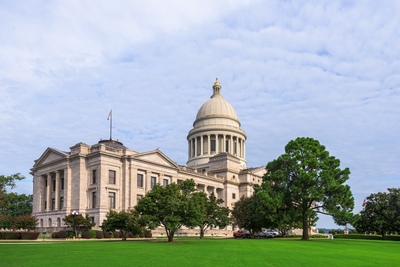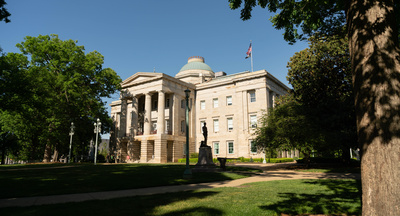
Elections & Campaigns
Legislation Addressing Foreign Influence in Elections Expanded Across Multiple States in 2025
January 23, 2026 | Andrew Jones
October 24, 2018 | Lauren Doroghazi
Voters in three states will weigh in on employment-related ballot measures this November. Measures in Arkansas and Missouri would raise the minimum wage — an issue that is typically popular with voters — while a California measure would allow ambulance providers to require workers to remain on-call during breaks. This is a notable decrease in employment-related activity at the ballot compared to 2014 and
Some of the
Massachusetts Governor Charlie Baker (R) signed a “Grand Bargain” bill in June that incrementally increases the state’s minimum wage to $15 per hour over five years and eliminates required overtime pay on Sundays and holidays. The legislation also includes a paid family and medical leave program that was set to appear before voters as well. Both the Massachusetts $15 Minimum Wage Initiative and the Massachusetts Paid Family and Medical Leave Initiative, backed by Raise Up Massachusetts, were on their way to the ballot before the Grand Bargain was passed. Afterward, proponents agreed to drop the initiatives and did not submit the additional 10,792 signatures required to put the measures before voters.
In Michigan, the legislature voted to enact the proposed Michigan One Fair Wage initiative, increasing the minimum wage to $12 per hour, and the “MI Time to Care” initiative, mandating that employers provide employees with paid sick leave that accrues at a rate of one hour per every 30 hours worked. It is highly likely that voters would have approved the initiatives if they had appeared on the ballot, which would have
Read on for descriptions of the ballot measures in Arkansas, California, and Missouri.

Arkansas Issue 5: Minimum Wage Increase Initiative
Arkansas Issue 5 would incrementally increase the state’s minimum wage to $11 per hour in 2021, beginning with an increase from the current minimum wage of $8.50 per hour to $9.25 per hour on January 1, 2019. Arkansans for a Fair Wage is registered in support of Issue 5, with backing from the Fairness Project, Sixteen Thirty Fund, and
California Proposition 11 is a response to the 2016 California Supreme Court ruling in Augustus v. ABM Security Services that found on-call employment rest breaks violated state labor law. Proposition 11 would allow ambulance providers to require workers to remain on-call during their breaks, which would be paid. Californians for Emergency Preparedness and Safety is leading the supporting campaign for the proposition, having raised $21.9 million and spent $12 million.
Missouri Proposition B: $12 Minimum Wage Initiative
Missouri Proposition B incrementally increases the minimum wage to $12 per hour in 2023, with annual increases or decreases thereafter tied to the Consumer Price Index. Currently, the minimum wage in Missouri is $7.85 per hour. If passed, the wage would rise to $8.60 per hour on January 1, 2019, with scheduled annual increases until 2023. Raise Up Missouri is registered in support of Proposition B, with support from the Fairness Project, Sixteen Thirty Fund, and

January 23, 2026 | Andrew Jones

December 10, 2025 | Bill Kramer
-238a17-400px.jpg)
December 10, 2025 | Bill Kramer